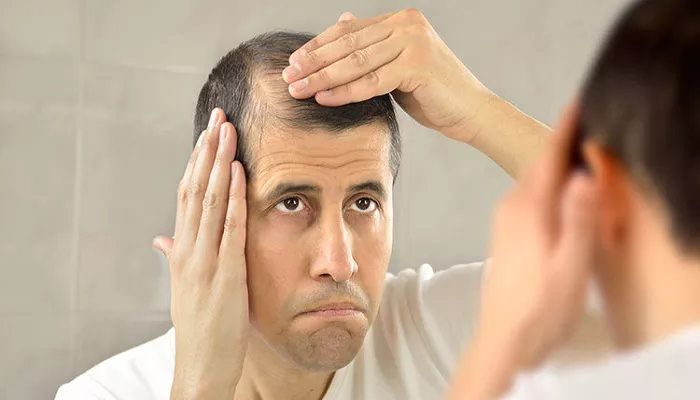A new report by Epic Research for NBC News shows that finasteride prescriptions for men in the U.S. have nearly tripled over the past seven years. Dermatologists say they are now seeing more young men, even those in their late teens, seeking early treatment to prevent hair loss.
Dr. Jerry Shapiro of NYU Langone Health says, “It’s like water in my clinic. I’m prescribing it all the time.” The rise in prescriptions is partly due to telemedicine companies like Hims, Keeps, and Ro, which heavily promote finasteride through ads and online platforms.
Social media influencers also share their hair regrowth journeys using the drug, and online communities such as Tressless and Reddit actively discuss its effects.
Finasteride is a daily pill approved by the FDA for nearly 30 years to treat male-pattern baldness, affecting about half of men by age 50. It works by blocking the enzyme that converts testosterone into dihydrotestosterone (DHT), a hormone linked to hair follicle shrinkage and hair loss.
Dr. Maria Colavincenzo from Northwestern explains that finasteride stops hair follicles from shrinking and may even reverse some of the damage. The drug is more effective when started early but must be taken continuously to maintain results.
Most men respond well to finasteride, with studies showing an 80% to 90% chance of slowing or stopping hair loss. A Korean study found nearly all men maintained or improved hair density after five years, while an Italian study showed 86% had no hair loss after 10 years of use.
However, finasteride is less effective at regrowing lost hair, so it is often combined with topical treatments like minoxidil.
Side effects can include decreased sex drive, erectile difficulties, and reduced semen volume, though these occur in less than 5% of users. There are also concerns about possible mental health effects, including depression, though links remain unclear.
The FDA now requires labels warning about potential suicidal behavior, following patient advocacy efforts.
Doctors advise caution, especially for men already experiencing sexual problems. Dr. Colavincenzo says, “If someone has sexual issues, I usually do not recommend finasteride.”
Dr. Shapiro notes that permanent side effects are extremely rare, stating, “I’ve treated thousands of patients and have never seen it.”
Because male-pattern baldness is cosmetic, finasteride is usually not covered by insurance. It has been available as a generic since 2006 and typically costs under $100 per month.


